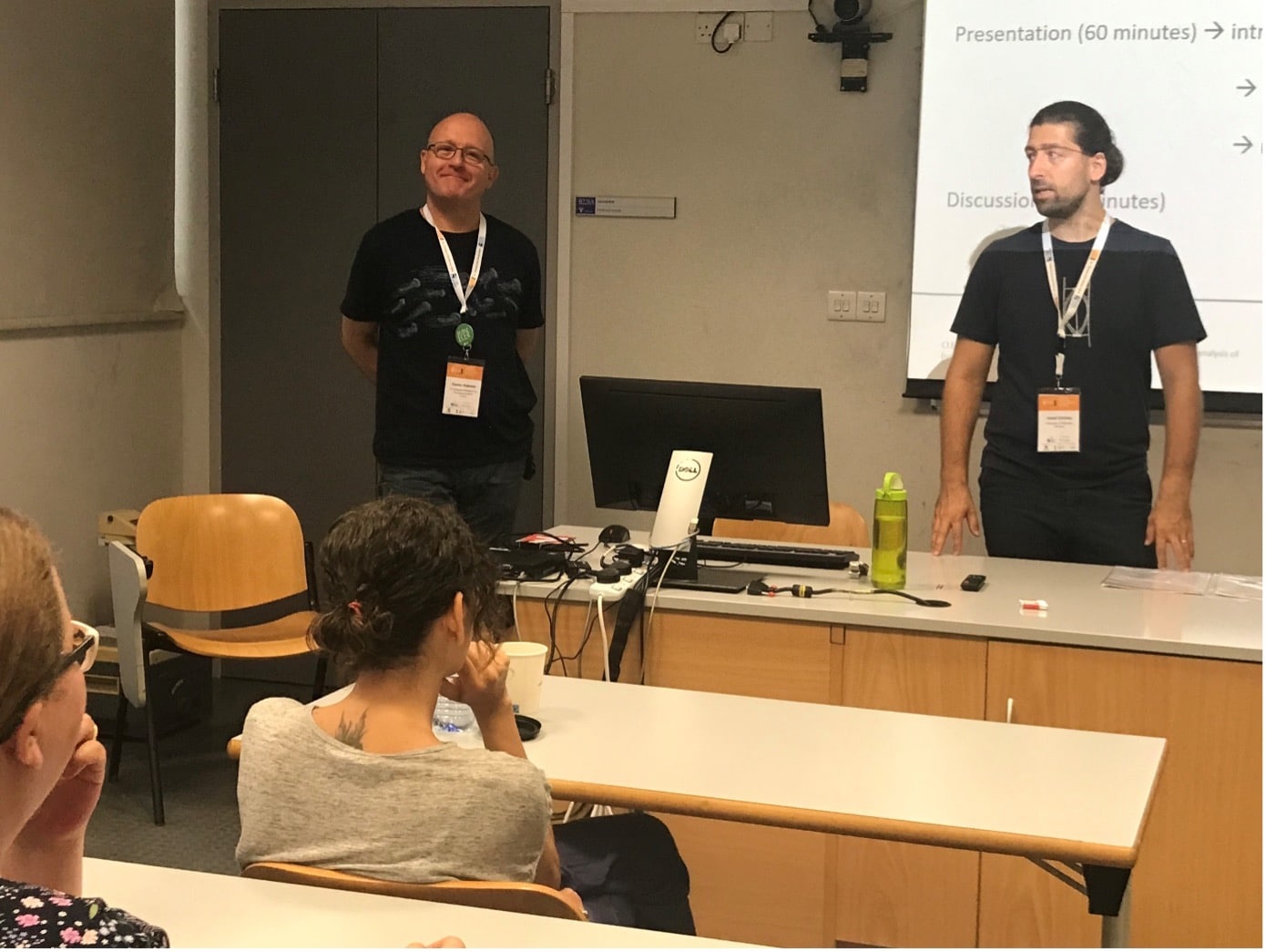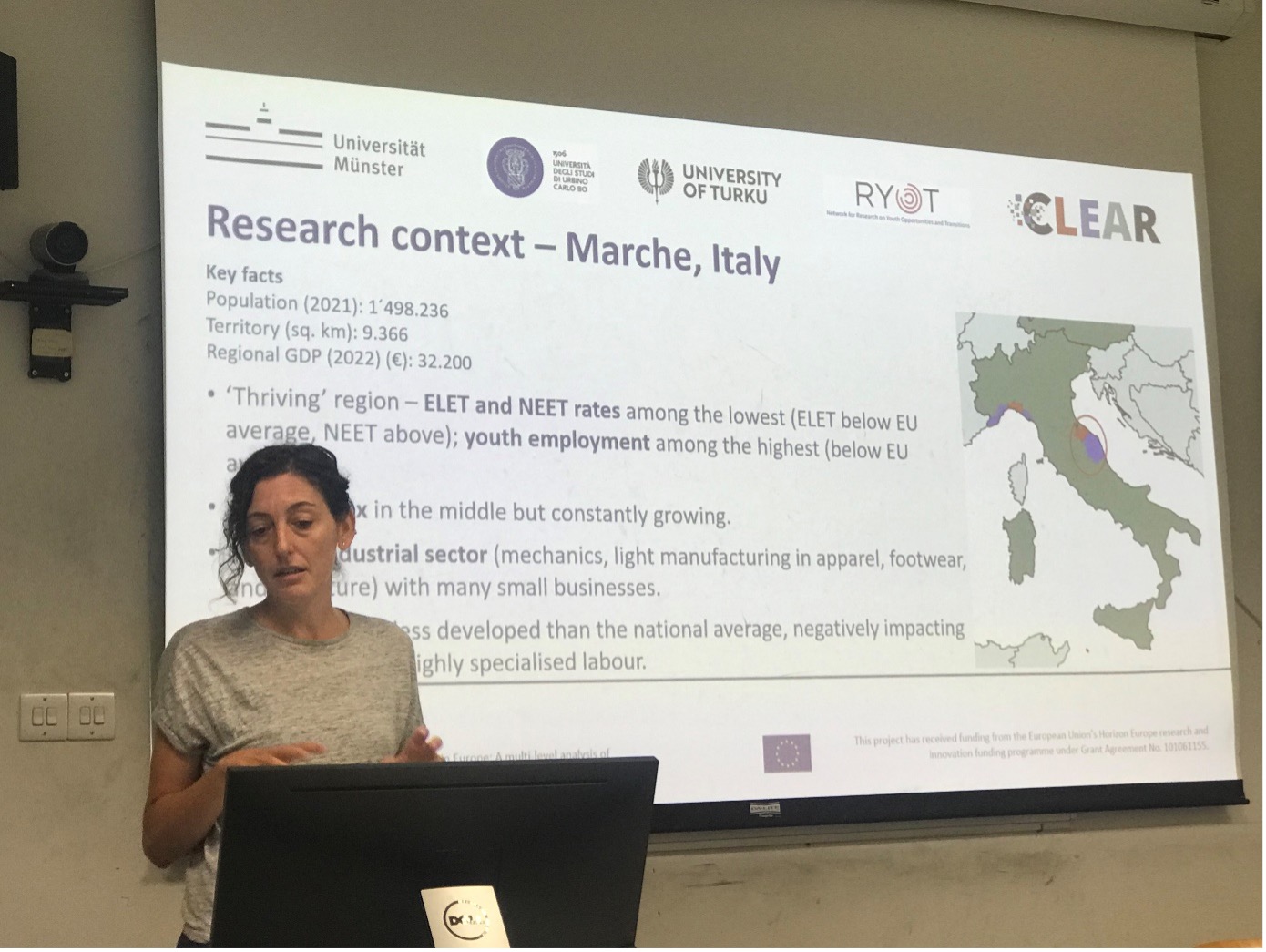The CLEAR research project is present at the major academic and research events in Europe. This year’s European Conference on Educational Research (ECER), while celebrating its 30th anniversary, took place on August 26-30, 2024, in Nicosia, Cyprus. More than 2000 researchers have joined the conference with the main theme Education in an Age of Uncertainty: memory and hope for the future. In this way, the conference was responding to the major educational challenges of the last years, including COVID-19 pandemics and several crises and conflicts, which all impact the way we see the role of education and educators in the future of Europe. Against this background, the early career and senior researchers of the CLEAR project have successfully applied for and presented several papers at the conference.
In their paper Young People’s Perspectives on Learning Outcomes: A Comparison Between Declining Regions in Finland and Bulgaria (August 29), Jenni Tikkanen and Siyka Kovacheva have presented the project’s findings from the interviews with young people in a comparative perspective. By focusing the spatialised forms of exclusion and discrimination, which open or close their possibilities and opportunity structures for young people, they have explored the subjective meanings young people give to learning outcomes as part of their life projects in their particular contexts. Their findings show, for instance, that many young people in vulnerable and multi-disadvantaged life situations invest in learning outcomes when they are relevant for their life courses and biographies. They also display a wide perception of learning achievement that goes beyond school grades or employability skills, such as awareness of the world around them, good relations with others and attainment of autonomy.

During the panel discussion Situating and Dynamizing Life Courses: The Analysis of Young People’s Subjectivation Processes in Finland, Germany, and Italy (August 30) led by Jozef Zelinka, Berenice Scandone and Jenni Tikkanen, the authors have presented the re-analysis of project’s findings, focusing in particular on the agency of young people in vulnerable and/or multi-disadvantaged positions. By combining the Life Course Research approach and subjectivation analysis, the researchers have emphasized the impact of diverse temporal and spatial experiences, which frame the extent to which young people are capable of actions and change. As their conclusions suggest, different temporal and spatial experiences and perceptions lead to various degrees of spatial embeddedness and the respective capacity to cope with and actively transform the surrounding (educational) environment.

Finally, Xavier Rambla, Berenice Scandone and Eduardo Barberis have presented their paper on Governing learning outcomes in the European Union (August 30). By utilising the findings of institutional analysis and policy review, the authors have explored the prevailing understandings of learning outcomes, while considering the life courses of students, the intersectional inequalities that constrain their life opportunities, as well as the regional disparities within the Union. In particular, they have focused on the premises on which policymakers and educators articulate the official definition of learning outcomes and asked, to what extent do they take regional and local contexts into account when articulating these variegated concepts.

We continue to disseminate the project’s results at various occasions and to diverse audiences and will update you on all results.
